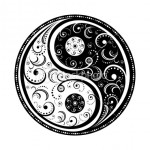China: a land of contradictions
Brian Hennessy. An Australian in China.
China is a land of contradictions. While on the one hand China presents herself as an outward looking developing nation proud of her new economic strength and rising international status; on the other hand she remains a culturally conservative, inward looking nation influenced by her isolationist past. Foreigners who live and work in the Middle Kingdom will find both attitudes coexisting in all levels and sectors of Chinese society.
China: a land of contradictions
______________________________________________________________
In China, behind a facade of concrete, glass, and international engagement lie conservative ways of thinking and behaving which owe more to Confucius than they do to modern management theories. For example; Chinese institutions and social relationships are hierarchical in nature. Respect for authority is a cultural value, most communication is downwards, and critical feedback is unwelcome. As a result, conservative thinking is rewarded, individual initiative is discouraged, and it is rare to find anyone who will admit to being personally responsible for anything.
Foreigners in China should be aware of these contradictions. We should also be aware of China’s ambivalent attitude to foreigners in general and to Westerners in particular. China’s belief in its cultural superiority and its long memory for historical humiliations can cause it to behave in a contradictory manner.
For example; although it needs western technology and know-how, it resents having to rely on the West for anything. Although Politburo members might criticize the West for all its sins, nevertheless that is where they send their children to be educated. And although China is a gracious host to foreigners who live and work in the middle Kingdom, we should know that we will always be regarded as outsiders. We can never become Chinese citizens in the way that migrants to melting-pot nations like Australia, Canada, and the USA have become integrated into those societies. A benign kind of racism is always bubbling away beneath the surface.
Thus there are two sides to this society: the ‘Face’ that is presented, and the reality that we experience. The best and the worst co-exist in China. From the wonderful, uncorrupted youth who are the hope of China, to the opportunists who will abuse their power for the smallest advantage they can wring out of you. From the gracious host who will invite you into her home, to the false friend who just wants to get his hand into your pocket. From the cultured, honourable representative of all that is good in Chinese society, to the cheat who will abuse your goodwill and regard you as a fool for being so easily tricked. The Middle kingdom does not seem to have much middle ground.
How can we cope with these contradictions? One way is to seek advice from an old China hand on these matters. Another way is read as much as you can about China. We can learn a lot about this complex society from the observations of individuals, academics, businessmen, and travellers who have put pen to paper. There is a lot of material out there these days. For my mind however, the best way to get a handle on Chinese society is to observe how Chinese people interact with each other and their superiors: ‘Protect yourself first’ appears to be a fundamental rule for survival. The other thing to notice is that there are very few equal relationships in China.
Another coping mechanism: we should be quietly proud of ourselves, our cultural identity, and of the achievements of Western societies. We should use this pride as a fall-back position when we are under stress from too many things Chinese.
Having mentioned these somewhat negative observations, let me say a few words about why many foreigners choose to live and work in China. We admire China and we like Chinese people. We are fascinated by her culture which is so different from our own, and are stimulated rather than confronted by the differences. Life here is rich in experience, and is never boring.
Even the countryside is different. It is geographically and ethnographically diverse. From the deserts of Xinjiang with its Moslem Uyghurs; to the Qinghai-Tibet Plateau and its Buddhist Tibetan people. From the ravines and rivers of Yunnan and its Dai, Mosou, Naxi, and Yi minorities; to the limestone kharsts and spectacular rice-terraces of Guangxi and its Zhuang people. From the rugged hinterland of Guizhou and its ancient Dong, Miao, and Yao villages; to the modern sophistication of Han majority cities like Beijing, Chongqing, and Shanghai.
China is a continent rather than a country. A civilisation rather than a nation state.


